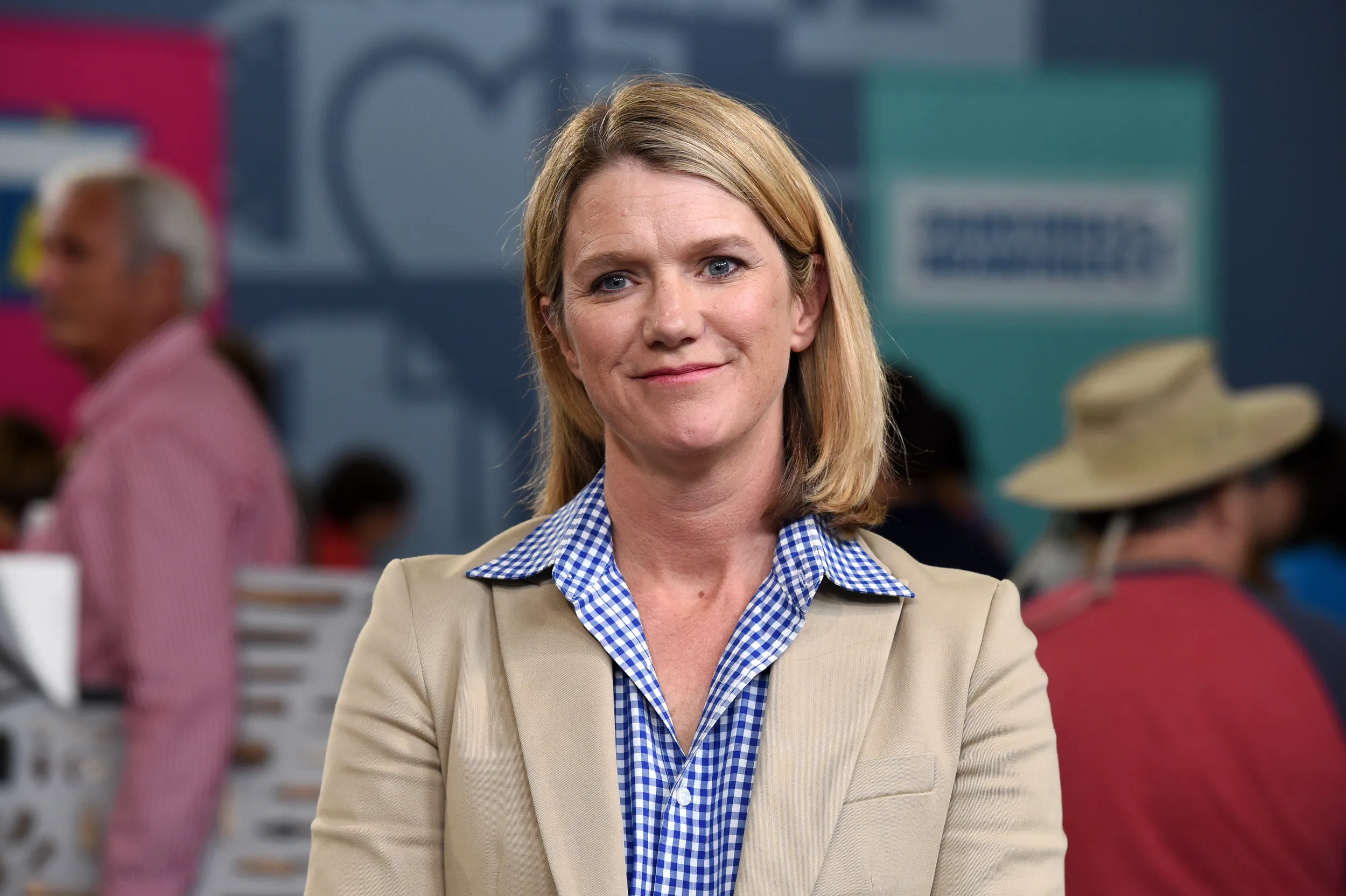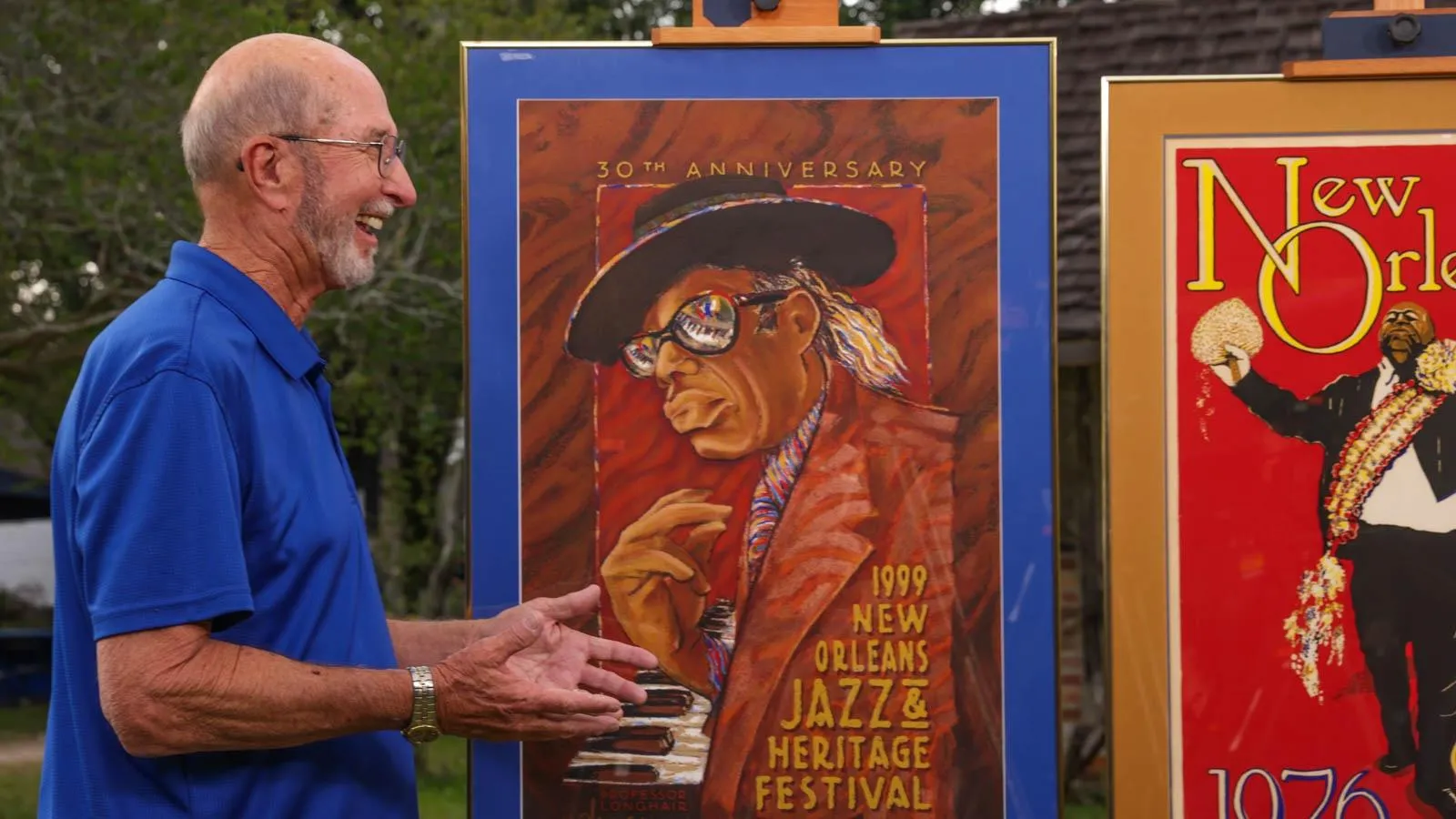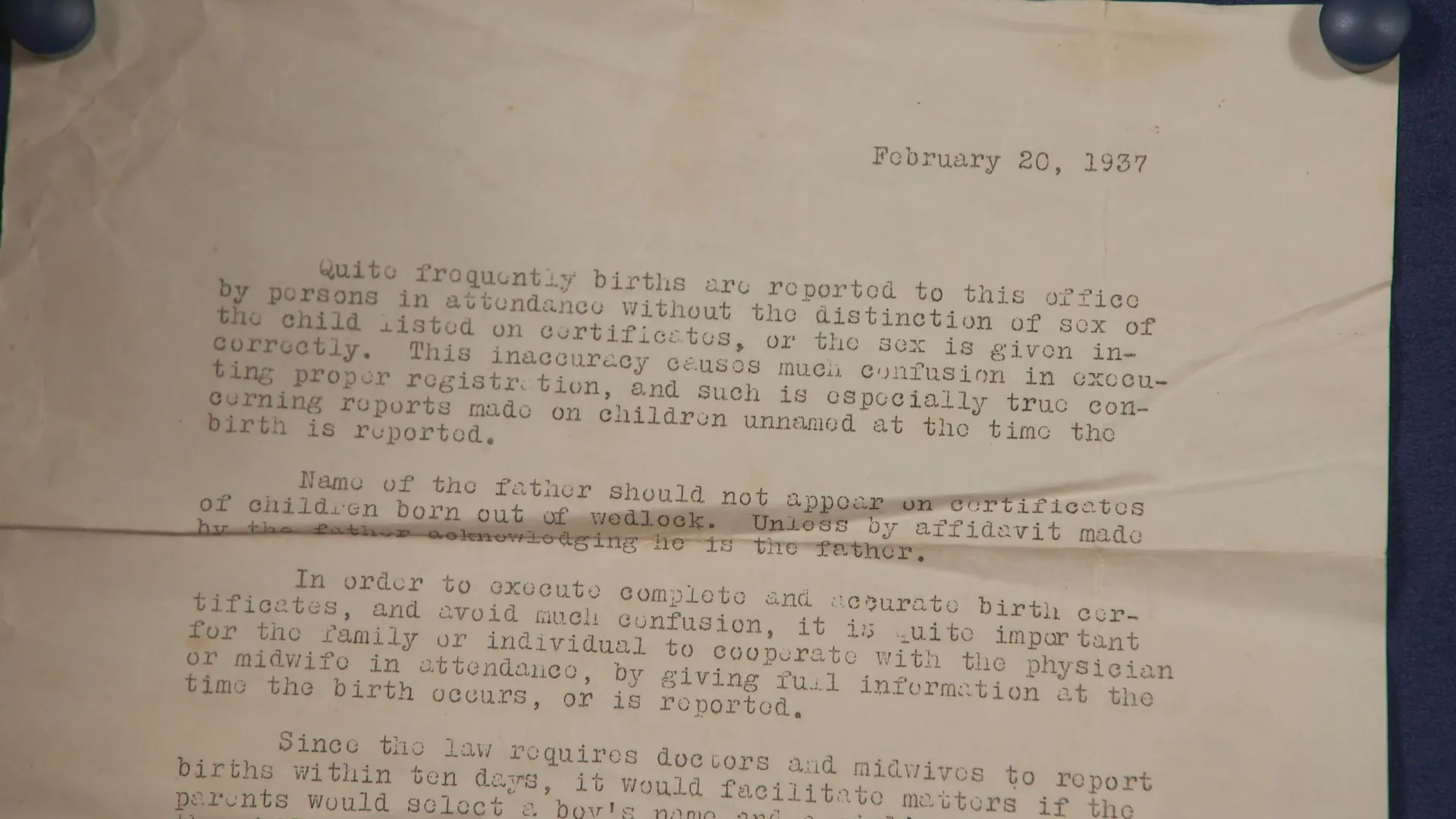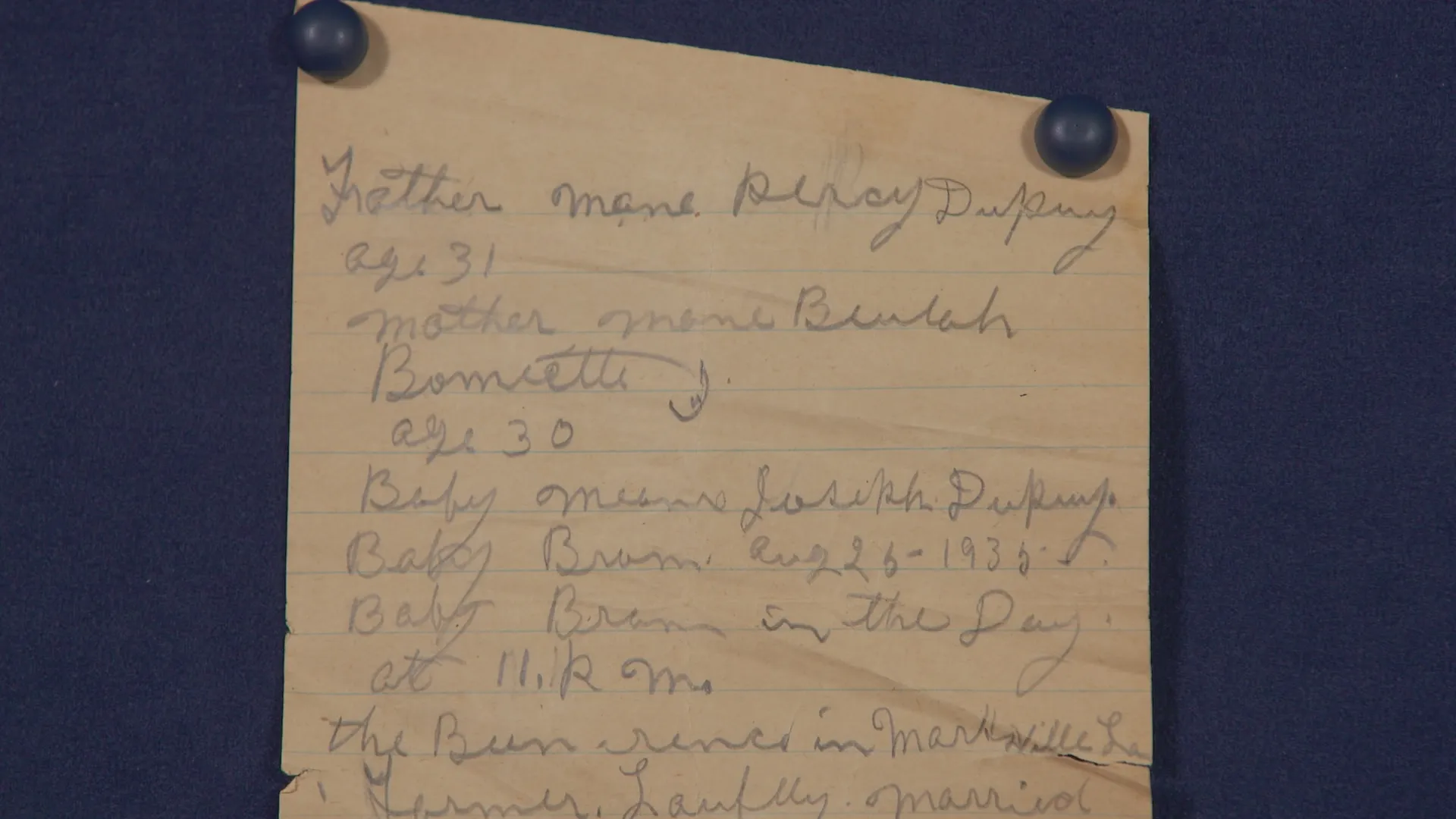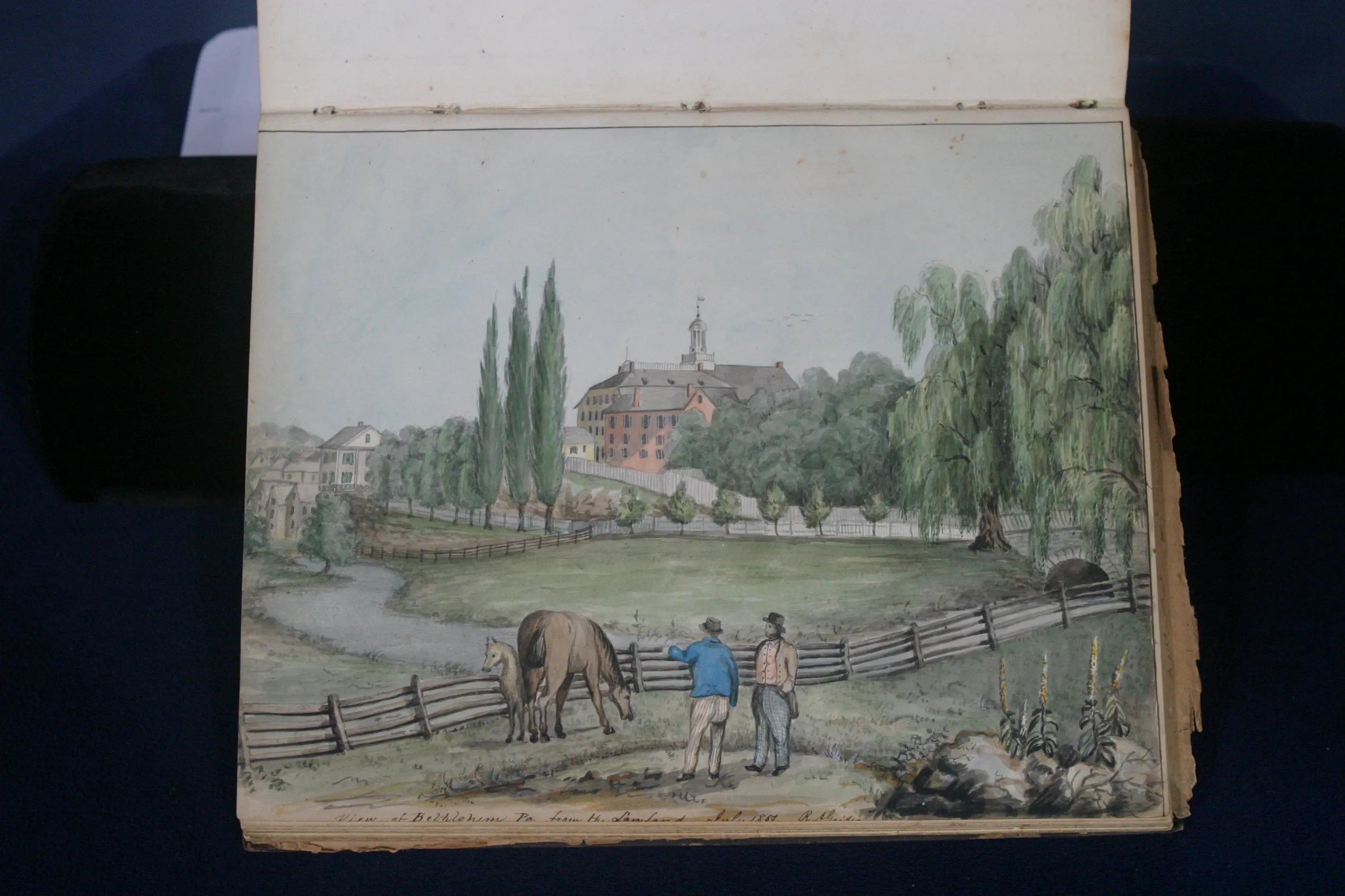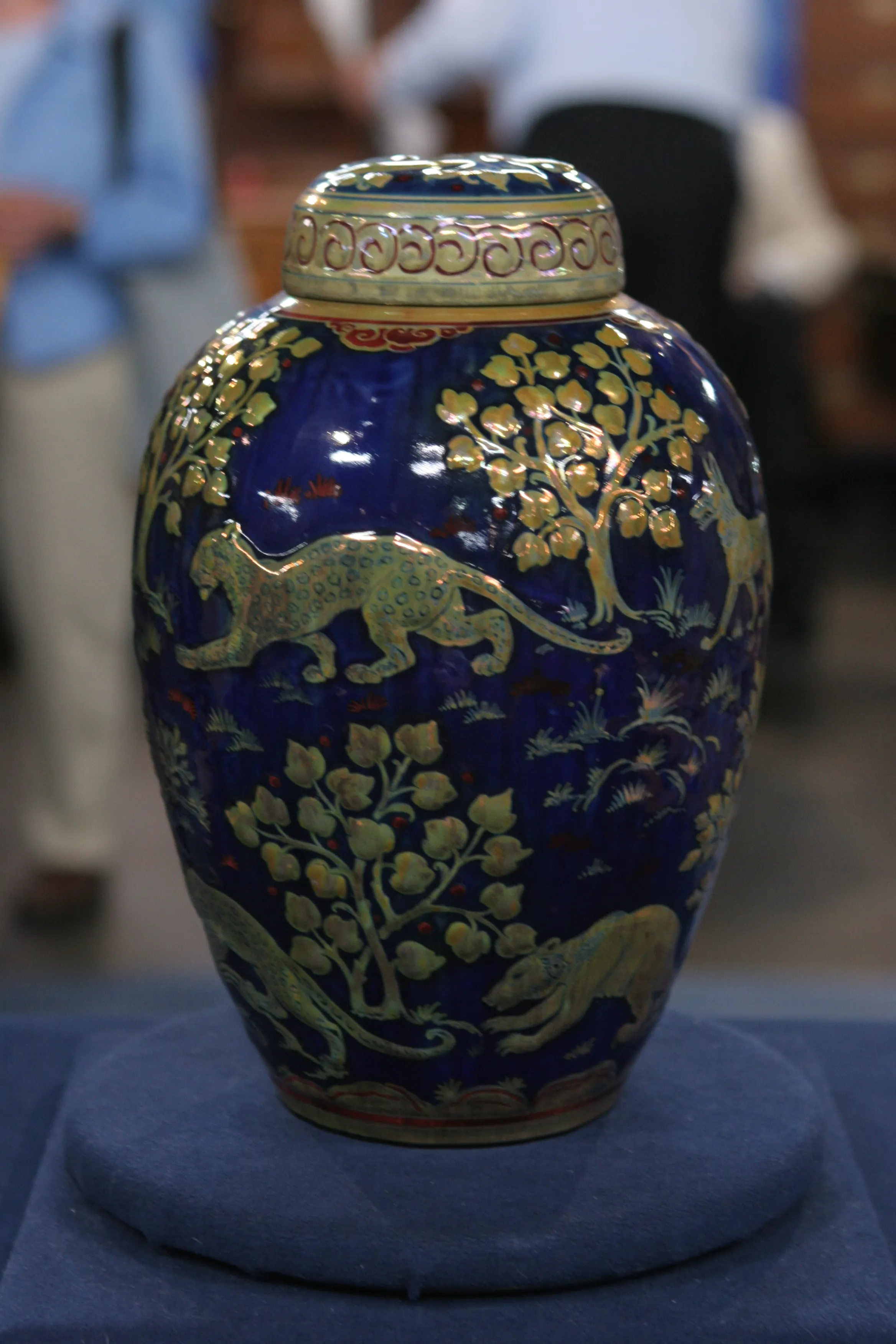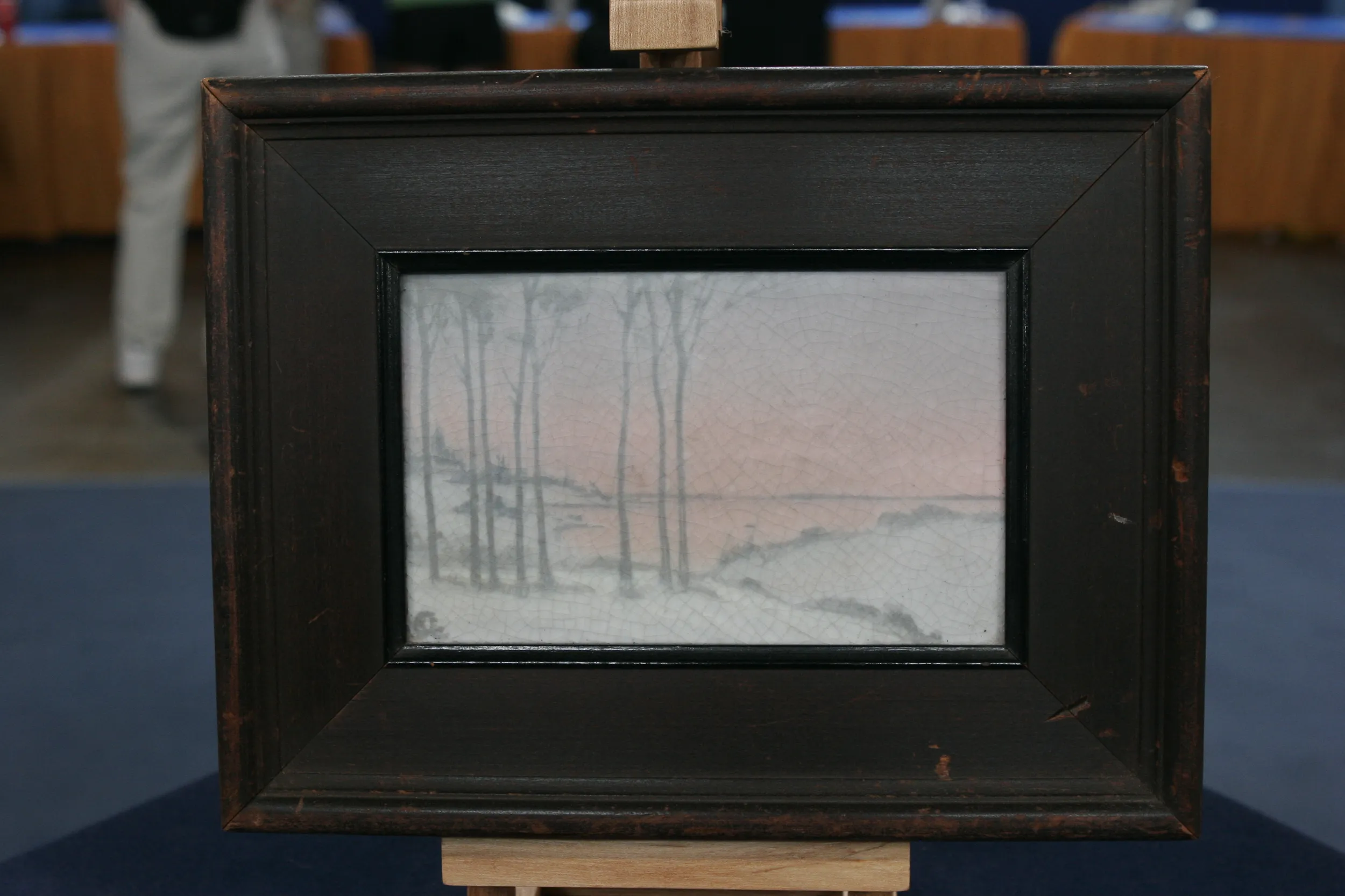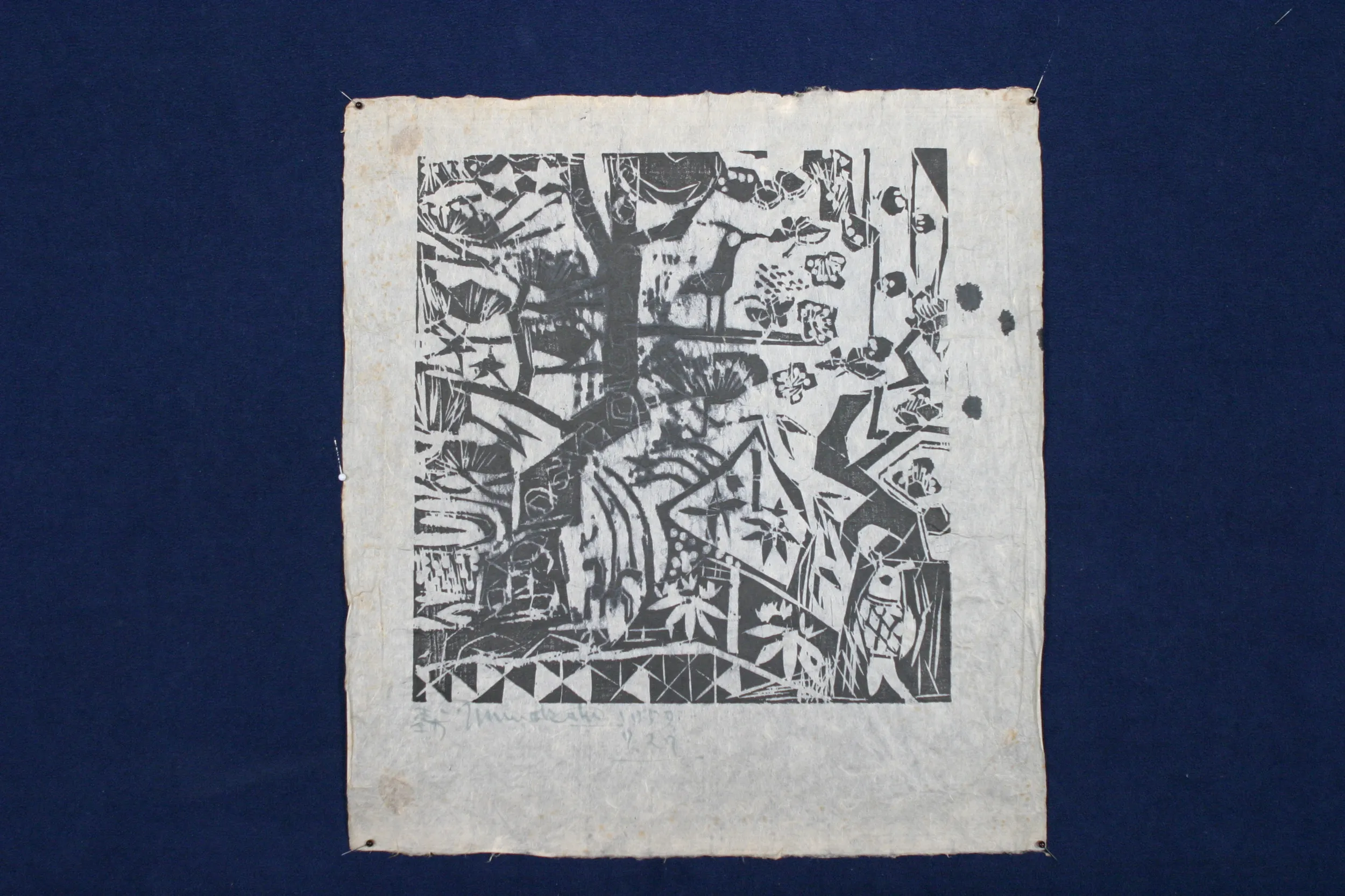GUEST: I brought in documentation from my grandmother, who was a midwife. She documented the babies being born and the family, the siblings,
and it, it was part of the records that she had to provide for the, uh, birth certificates.
APPRAISER: So when did your grandmother live?
GUEST: She was born in 1875 and she passed away in 1973. She worked for the Avoyelles Parish Health Unit in Marksville, Louisiana.
APPRAISER: And it's this wonderful little archive, this little slice of, of history of what it meant to be a midwife in Marksville in the early 20th century. This is a note for a family. The father's name is Percy DuPuy, and the mother is Beulah Bonnette. They already had a baby. They had a, a Joseph DuPuy, and it looks like they also had twins on August 25, 1935, which they haven't named yet. The family farms, and the parents are lawfully married, and they have only three children, two girls and one boy. This is a mimeograph from the Bureau of Vital Statistics, which is the department that collects data on birthrate in Louisiana. And this is a mimeo sent from the, from the bureaucrats to the midwives, basically talking down to them and telling them what to do. Starting off by saying, "You should make sure you indicate the sex of the baby," right? "It's, causes a lot of confusion if you don't put the name and you don't put the sex of the baby." And then they tell them, "You should not put the name "of the father on the certificate "if the couple is not married, unless he signs an affidavit to that effect." We can learn a lot about what it meant to be a midwife and how the state felt about them, right? They're providing this vital service...
GUEST: Mm-hmm.
APPRAISER: ...to the community, and yet the people in the state office are, like, "You're not a doctor; don't pretend to be a doctor." When these are the people... We actually know that midwives had a better survival rate for births, um...
GUEST: Yeah. Mm-hmm.
APPRAISER: ...at, in that particular time period. This metal strongbox includes a lot of personal information. There are letters from children and grandchildren.
GUEST: Yeah.
APPRAISER: There are insurance policies. There are other notations. So, it's this wonderful snapshot of what life was like in the early 20th century in Marksville, Louisiana, for your grandmother.
GUEST: Wow. It touches my heart because I'm a nurse. I'm a registered nurse, and I always knew the history of my grandmother being a midwife. And when I received this box, I was in nursing school.
APPRAISER: Oh.
GUEST: So it was amazin’ to look through it. And it was almost like an encouragement for me to continue my education-- through LSU. (chuckles)
APPRAISER: Go, Tigers.
GUEST: My nursing degree. So, it's, this is like a treasure to me.
APPRAISER: I would put an auction value on it of $1,500 to $2,500.
GUEST: Oh, really.
APPRAISER: And I would catalogue the heck out of it and see what happens.
GUEST: Oh, that's amazin’. That's actually amazin’.
